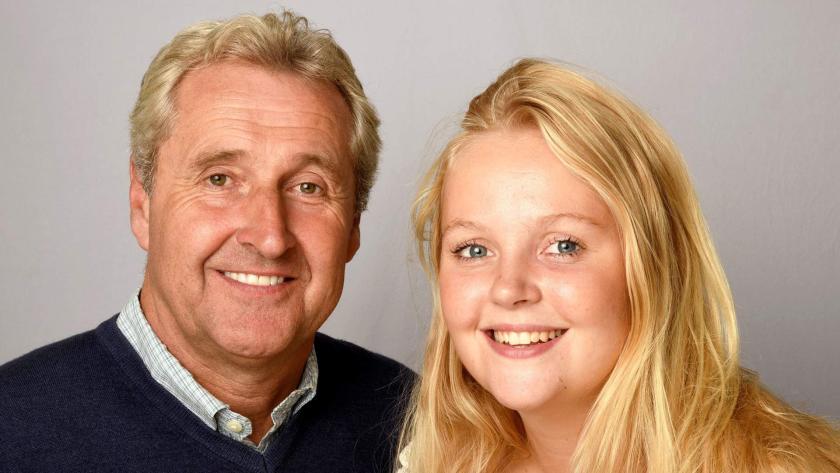Journalist Mark Austin is no stranger to conflict, having reported from war-torn landscapes including Rwanda, Iraq and even the ITN newsdesk. However, when the battle lines were drawn closer to home and involved an enemy he couldn’t see, the veteran journalist found himself in unfamiliar territory and without any kind of roadmap.
When his teenage daughter, Maddy, was suffering from anorexia, Austin, by his own admission, was found wanting, not knowing what to do and struggling with a situation he didn’t understand and could do little to influence. This Channel 4 documentary seemed to be a chance for the pair of them to put ghosts to rest by raising the profile of this damaging disease.
What became very clear in the first half of this powerful piece was that, while a condition affecting weight, anorexia is a mental health issue – and although discussion around such issues is undoubtedly easier than it has been in the past, there is still a taboo surrounding associated ailments.
One thing was clear: cuts in funding cost lives
One person who knows this more than most is the son of the most famous bulimic in the world, Prince William. He was the first person Maddy and her father went to talk to about the issue, and with good reason. His sober and calm take on the disease that his mother had chosen to confront so publicly more than 20 years ago was incredibly refreshing. William spoke of the need to "normalise" mental health issues with a sincerity that is hard to imitate, and, in doing so, helped to loosen the awful knot tied by his father, who for years has spouted awful, ill-informed nonsense about homeopathy and architecture.
Of course, without healthcare resources to help, understanding and empathy is useless. When talking about her experience within the NHS, Maddy recalled being given a meal-planner – a course of action about as effective as giving a smack addict a smiley-face sticker that says, "Remember: don’t do any heroin!"
Funding is the key issue, and the documentary showed, in stark terms, the link between a lack of investment and immediate, tangible outcomes. From the mother flying from Nottingham to Edinburgh to see her daughter in a private hospital part-funded by an NHS that can’t afford local support, to the Norfolk family whose daughter took her own life in the absence of any community care, one thing was clear: cuts in funding cost lives.
 And so we came to the showdown, as Maddy and Mark faced Secretary of State for Health, Jeremy Hunt (pictured right). Throughout the discussion, Hunt showed all the emotional investment of a gravedigger five minutes away from his lunch break, but the clincher was when they asked him about the £150 million promised by this government to help mental health provision for young people.
And so we came to the showdown, as Maddy and Mark faced Secretary of State for Health, Jeremy Hunt (pictured right). Throughout the discussion, Hunt showed all the emotional investment of a gravedigger five minutes away from his lunch break, but the clincher was when they asked him about the £150 million promised by this government to help mental health provision for young people.
When confronted with the fact that much of this investment is being spent on IT upgrades instead of helping those in need, he argued that the government would rather spotlight the Clinical Commissioning Groups misspending our money than ring-fence it to make sure this couldn’t happen in the first place. It was an extraordinary piece of sophism that left us in no doubt who the real villain of the piece was.
The programme offered much to think about - not least how we talk about mental health and how we fund treatment. While I can’t do much about the latter, I can tell you that in July I hurt my back getting out of bed. I also went to the doctor in tears with a problem that has been plaguing me for years and needs anti-depressants to treat. I see no difference between the two, and neither should you.















Add comment